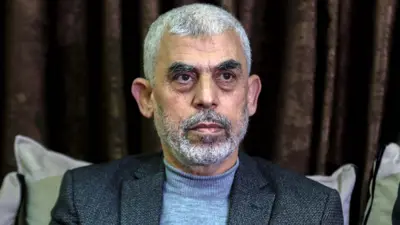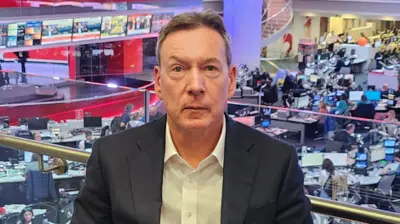We've updated our Privacy and Cookies Policy
We've made some important changes to our Privacy and Cookies Policy and we want you to know what this means for you and your data.
Village blighted by rotten egg landfill odour
Image source, Google
- Author, Liam Randall
- Role, Local Democracy Reporting Service
Villagers living near a landfill site say their lives are being made a misery by a foul stench like rotten eggs.
Residents in Johnstown, Wrexham, have long complained of bad odours coming from the Hafod Landfill, where both domestic and commercial waste is buried.
Site operators Enovert were issued with a statutory notice by Natural Resources Wales (NRW) in December 2023 for breaching its environmental permit and the company said it had taken "all appropriate measures to comply".
But a local councillor said the smell was still having a "significant impact" on the daily lives of residents.
More than 300 complaints were raised about the landfill site between October 2023 and August 2024, and a council meeting is due to be held on Wednesday to discuss the issue.
David Bithell, independent councillor for Johnstown and deputy council leader, said he had met with Enovert and NRW and they told him "they are committed to being good neighbours and want to work together".
"Despite several assurances we are continuing to have odour from the site," he added.
Councillor Hugh Jones, lead member for public protection, said there was "active and ongoing dialogue with the site operator and NRW" and the "strength of public feeling is significant".
"There is acknowledgement that the odour emanating from the site is affecting individual and community health and wellbeing," he said.
Image source, Enovert
The local authority also said staff from its environmental health team had spent "a considerable amount of time" dealing with the issue.
Enovert said it was aware of the upcoming council debate and had already taken steps to address the issue.
Its chief executive, Mark Silvester, added these measures included "installation of gas extraction infrastructure, temporary capping of operating areas, acceleration of permanent capping and utilisation of the gases collected for the generation of renewable energy".
Top Stories
More to explore
Most read
Content is not available








